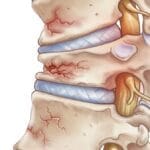Staying Active as You Age
The Importance of Staying Active
For many, maintaining independence and an active lifestyle ranks among the top priorities for aging well. The key to staying active as you age is to embrace regular physical activity that suits your preferences and capabilities.
Benefits of Exercise
- What Can Exercise Do for Me?
As you age, you naturally lose muscle and bone mass, which can lead to conditions like back pain, osteoarthritis, or osteoporosis. Regular exercise:- Slows muscle loss and strengthens bones.
- Reduces joint and muscle pain.
- Improves mobility and balance, lowering the risk of falls and fractures.
- Do I Need Intense Exercise to See Benefits?
Not at all! Studies show that just 30 minutes of moderate activity, like brisk walking or washing your car, provides substantial health benefits. The key is consistency. Activities don’t need to be intense—moderate or even light activity is better than none.Ideas for Moderate Activities:- Take a brisk walk.
- Work in your yard.
- Ride a bike.
- Walk the golf course instead of using a cart.
- Wash and wax your car.
The most important thing is to find activities you enjoy and do them regularly.
Starting Exercise Later in Life
It’s never too late to begin. Physical activity can help older adults stay independent and improve quality of life. For example, a study involving frail nursing home residents in their 80s and 90s showed that weightlifting improved their strength and functional ability. Staying active also:
- Reduces the risk of heart disease and high blood pressure.
- Helps manage diabetes.
- Supports maintaining a healthy weight.
Exercise and Chronic Conditions
Contrary to common fears, physical activity often improves chronic conditions rather than worsening them. For conditions like arthritis or osteoporosis, exercise is both safe and beneficial. Lack of movement can make these conditions more challenging to manage.
Managing Back Pain Through Exercise
- During Acute Pain: Avoid strenuous activities, but stay mobile. Prolonged rest can delay recovery.
- For Chronic Back Pain: Strengthen your core, hips, and thighs to relieve pain and prevent future problems.
Tips for Preventing and Managing Back Pain:
- Engage in activities like walking, swimming, or cycling.
- Practice proper lifting techniques.
- Maintain a healthy body weight.
Staying active, even with health challenges, improves strength, mobility, and overall well-being, allowing you to enjoy a more independent and fulfilling life.





